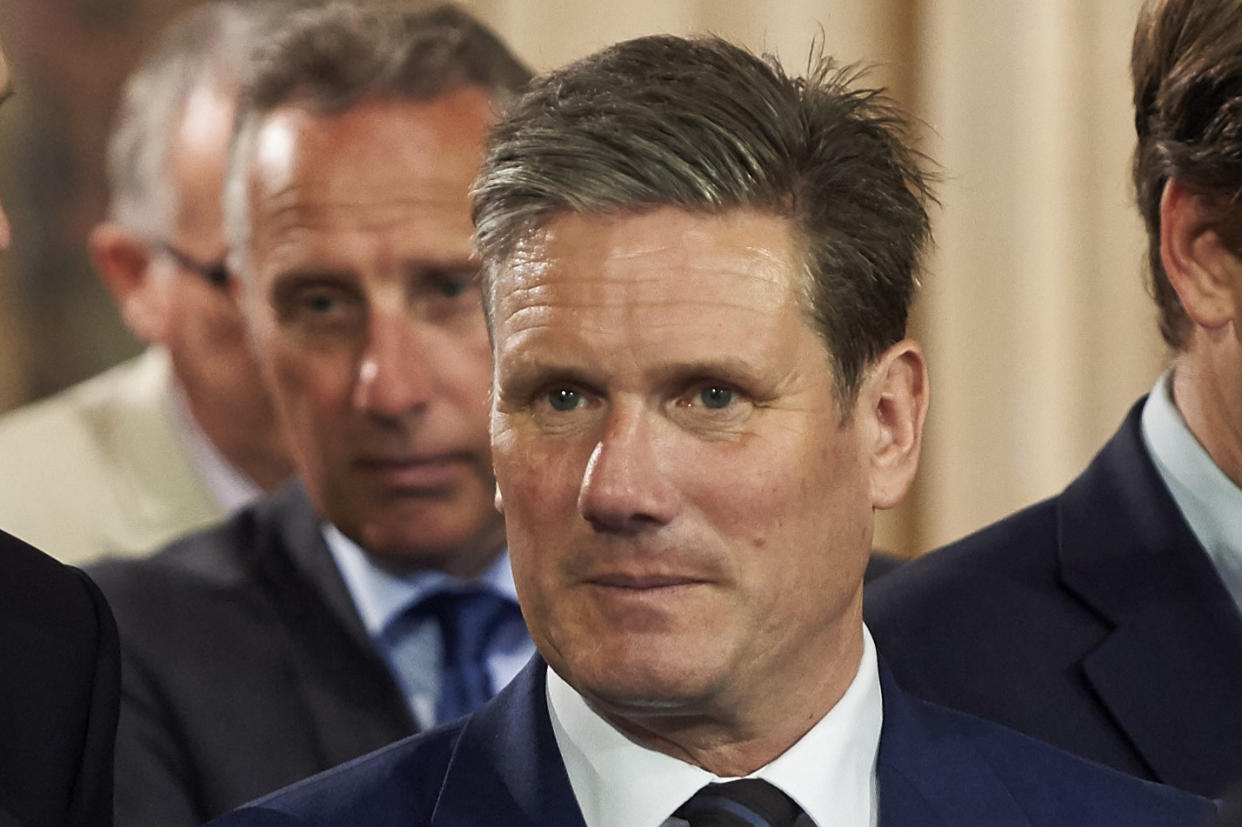Labour sets out its stall as party of 'soft Brexit' in single market policy shift

Labour is to announce it supports continued membership of the single market when the UK leaves the EU in a major policy shift over Brexit.
Tomorrow will see the party set out its stall as the party of “soft Brexit” in a move that will clearly differentiate Labour’s approach from the Government’s.
The new policy – likely to please many of the party’s supporters but certain to anger others – was revealed by shadow Brexit secretary Sir Keir Starmer in an interview with the Observer.
Prime Minister Theresa May has said there will be a “transition period” lasting at last two years after the UK leaves the EU in March 2019 during which time the government aims to negotiate an interim customs arrangement and a deal to operate from outside the single market, but with continued access, to avoid an economic “cliff edge” for businesses.
But Jeremy Corbyn’s party is to say it hopes on-going membership of the single market and the customs union might be possible through negotiations with the EU, which will be reduced to a 27 nation block once the UK takes its leave.
Sir Keir said: “We will always put jobs and the economy first.
“That means remaining in a form of customs union with the EU is a possible end destination for Labour, but that must be subject to negotiations.
"It also means that Labour is flexible as to whether the benefits of the single market are best retained by negotiating a new single market relationship or by working up from a bespoke trade deal.”
Remaining in the single market under current rules would force the UK to continue to follow the EU’s freedom of movement laws, to pay substantial sums into the block’s budget and to accept the judgement of the European Court of Justice on matters of trade and economics.
But Labour’s new policy is that if it was in Government, it would attempt to negotiate a fresh deal on immigration and freedom of movement following intense negotiations by key party figures - an aim critics say is unrealistic and certain to fail.
While the vast majority of the party’s MPs were in favour of remaining in the EU, the picture within its members and supporters was mixed with a significant number of traditional Labour voters expressing concerns over immigration.
Many areas of the country which are traditional Labour strongholds voted to leave.
With the European Union withdrawal bill set to return to the Commons on 7 September, Ms May’s control of her own party could be under threat if several of her own pro-remain MPs decide to vote with Labour on remaining in the single market and customs union.
In a jointly-penned article two weeks ago, Chancellor Philip Hammond and International Trade Secretary Liam Fox made clear the UK will leave the customs union and the single market in March 2019 in a display of unity that was seen as a clear indication the Government is now resigned to a so-called “hard Brexit”.
Sir Keir said the Tory approach is an “unnecessary and highly risky path to take,” just as his opposite number, Brexit Secretary David Davis, prepares to embark on the latest round of talks in Brussels with the EU’s chief negotiator Michel Barnier.
Mr Barnier has previously indicated the block will not be prepared to offer a favourable deal on the single market with special terms and conditions over freedom of movement for the UK.

 Yahoo News
Yahoo News 
